
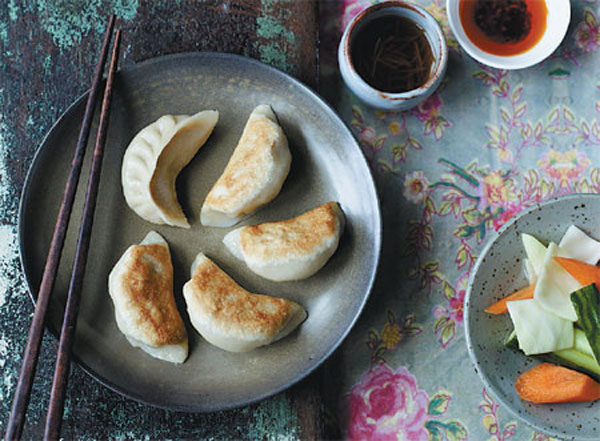 |
|
Fried jiaozi served at Mama Lan's Restaurant in Brixton, south London is redolent with Beijing flavor. Photos Provided to China Daily |
It is cold and bone-chilling weather, and the rising steam from cooking dumplings mist up the little shop. Ellie Buchdahl finds comfort in feasting on Chinese dumplings in south London.
In a corner of a marketplace, squeezed between stalls stacked with fruit and vegetables and brightly colored clothes, is a hole-in-the-wall restaurant. Diners wrapped in coats and scarves slurp steaming bowls of noodles and dunk crisp, lightly-fried jiaozi into little dipping dishes of vinegar and chili.
Some diners eke out a place at an outside table among jostling shoppers. One or two have found a space at the bar inside, where a small woman dressed in a plastic apron stirs huge bowls of woodear mushrooms, carrot and Chinese cabbage, while her daughter flicks, folds and stuffs the filling into dumplings.
The air is full of the juicy, salty smell of the Beijing market. Except Mama Lan's restaurant isn't in Beijing. It's in Brixton, south London.
Almost every British town has its Chinese takeaway or "oriental" restaurant, but it's unusual to find a place like Mama Lan's that takes you north of the Anglo-Cantonese menus with their wonton soups and prawn toasts.
Mama Lan herself (she goes by her family nickname) was born in Beijing.
|
 |
| Honestly good |
She helped her father run his dumpling stand at a market near Jianguomen and waitressed at a nearby Muslim restaurant. She moved to Britain in 1992 when her husband, a head chef at Quanjude, was sent to work in a fledgling overseas branch of the famous Beijing restaurant in Manchester - a venture that never quite took off.
It was these northern flavors - the hearty soups, the meaty stir-fries and more than anything the dumplings - that were central to Ning's childhood.
Even after she and her parents came to Britain when she was 15 and Ning went to English school, became an accountant and started work in private equity house Coller Capital, she couldn't get those flavors out of her mind.
So Ning decided to take her mother's talent - and her own taste for Beijing food - to the British market.
"I was always cooking with my mum and talking about the old days," she says. "I had wanted to do something for ages, something that showed people there's so much more to Chinese food than what you get in the UK.
"So one day I just decided I'd had enough, and I gave in my notice at work and was like, right - I'm going to find a shop!"
Back in 1992, Ning says, Britain wasn't ready for a new kind of Chinese food "because people didn't travel as much and they didn't really get the whole theater behind things like roast duck".
But after a successful test run with the "Mama Lan supper club" in February 2010, she says she decided things had changed.
"We advertised on a central supper club website and people came to our house to eat and just paid a donation to the costs," she explains. "We did the first one to celebrate Chinese New Year and we were surprised how well people reacted to it. Suddenly we had loads of bookings and people were coming back again and again.
"We always made food at the supper club we would eat at home - dumplings, noodles, buns, that kind of thing. So when I started the restaurant, I just decided to do what we eat at home again - especially dumplings, because we love them so much!"
|
 |
 |
 Journey to the jiaozi: A hearty, healthy Spring Festival 2010-02-09 14:15
Journey to the jiaozi: A hearty, healthy Spring Festival 2010-02-09 14:15
2013 Chinese New Year |

Hidden dragons, crouching tigers |
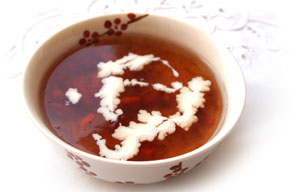
Soap beans, silver ears and peach gum |

Special:Winter Solstice |
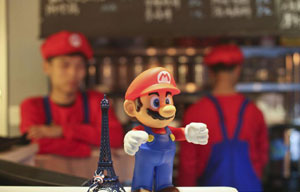
Mario themed restaurant opens in Tianjin |
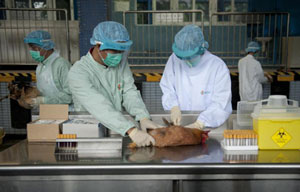
HK carries out avian influenza tests on imported chicken |
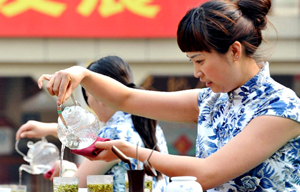
2013 China Tea Conference kicks off in Zhejiang |
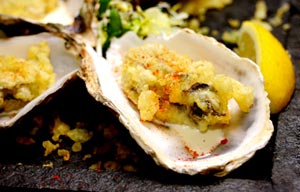
Oysters make spring sing for diners in Beijing |